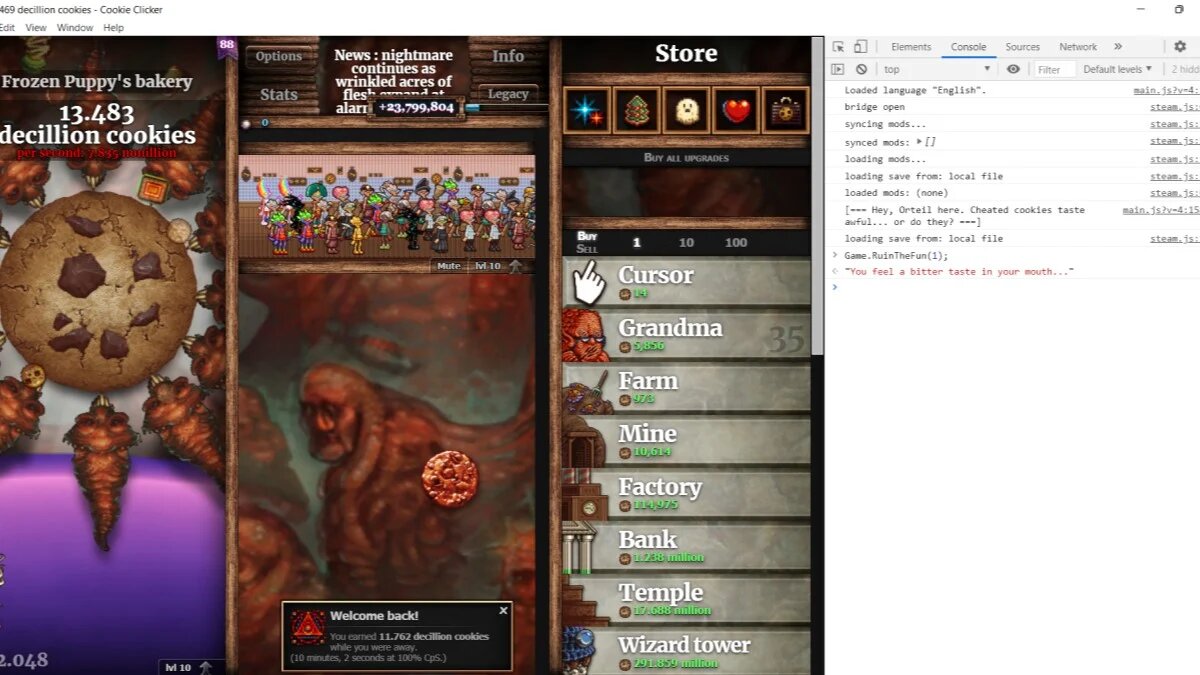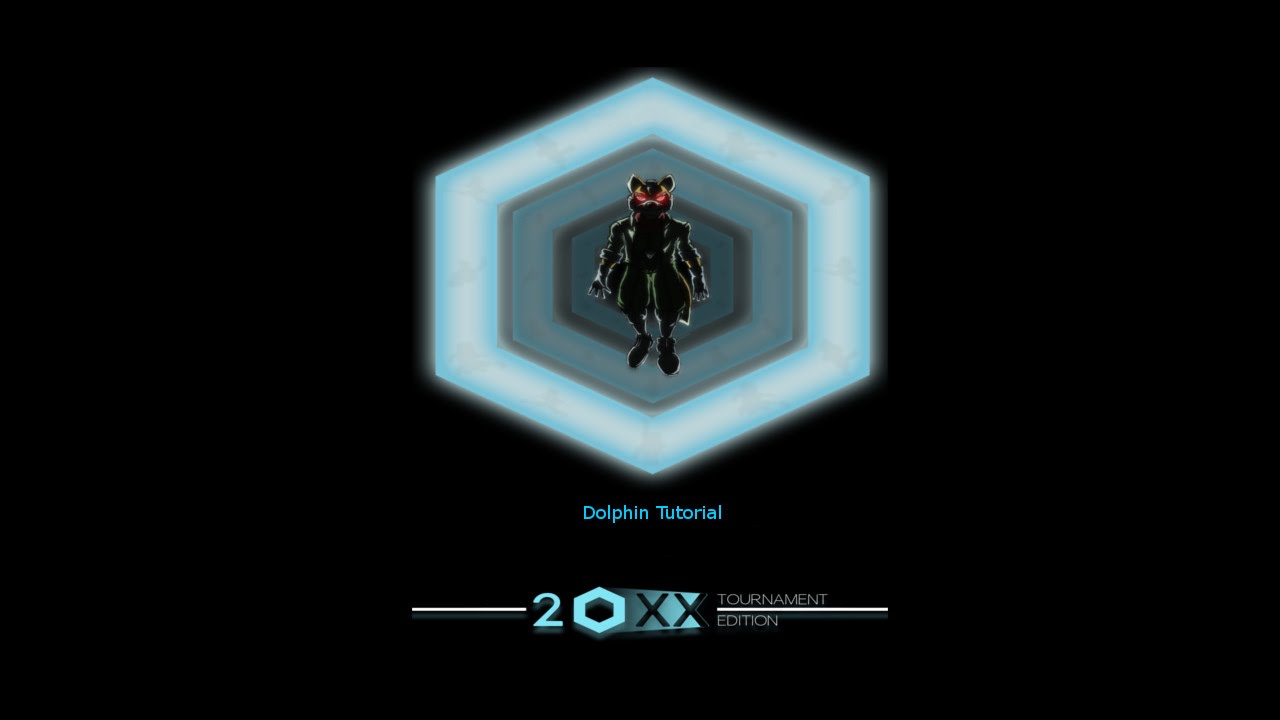Introduction
Browser games have become a popular pastime for millions of people around the world. These games, often free to play and easily accessible through web browsers, offer a diverse range of entertainment, from simple puzzles to complex multiplayer experiences. However, with the rise in popularity of browser games, there has also been an increase in the interest of hacking these games for various purposes.
Hacking browser games can involve uncovering vulnerabilities within the game's code or exploiting loopholes in the game's design to gain an unfair advantage. While some individuals may seek to hack browser games for personal gain or to disrupt the gaming experience for others, there are also ethical hackers who aim to identify and address security flaws to improve the overall integrity of these games.
In this article, we will delve into the world of browser game hacking, exploring the methods used to identify vulnerabilities, the process of exploiting these vulnerabilities, and the ethical considerations that come into play. Whether you are a curious enthusiast looking to understand the inner workings of browser games or an aspiring ethical hacker seeking to enhance your skills, this article will provide valuable insights into the fascinating realm of browser game hacking.
Understanding Browser Games
Browser games, also known as web games or HTML5 games, are video games that are played directly within a web browser. These games have gained immense popularity due to their accessibility, as they do not require any installation and can be played on various devices, including computers, tablets, and smartphones. Browser games encompass a wide range of genres, from casual puzzles and strategy games to immersive multiplayer experiences.
One of the defining characteristics of browser games is their reliance on web technologies such as HTML, CSS, and JavaScript. These games are typically built using web development frameworks and libraries, allowing developers to create interactive and visually appealing gaming experiences that can be accessed through a URL. Unlike traditional PC or console games, browser games do not require high-end hardware or dedicated gaming platforms, making them accessible to a broad audience.
The architecture of browser games often involves a client-server model, where the game logic and assets are hosted on a remote server, and the player interacts with the game through a web browser. This architecture enables seamless updates and maintenance, as developers can push new content and patches without requiring players to download and install updates manually.
Furthermore, browser games frequently incorporate social and multiplayer elements, allowing players to connect with friends and compete against each other in real time. This social aspect has contributed to the widespread appeal of browser games, fostering vibrant communities and fostering a sense of camaraderie among players.
From a technical standpoint, browser games leverage the capabilities of modern web browsers to deliver engaging gameplay experiences. Features such as canvas rendering, audio APIs, and local storage enable developers to create visually stunning and interactive games that rival the quality of traditional gaming platforms.
In recent years, the advancement of web technologies, including WebGL and WebAssembly, has further expanded the possibilities for browser game development, enabling complex 3D graphics and high-performance gaming experiences within the confines of a web browser.
Understanding the underlying technology and design principles of browser games is crucial for both players and developers. For players, it provides insight into the inner workings of the games they enjoy, fostering a deeper appreciation for the creativity and innovation behind each title. For developers, understanding the unique challenges and opportunities presented by browser game development is essential for creating compelling and secure gaming experiences.
As we delve deeper into the realm of browser game hacking, this foundational understanding of browser games will serve as a valuable backdrop for exploring the intricacies of identifying vulnerabilities and the ethical considerations associated with hacking these games.
Finding Vulnerabilities
Identifying vulnerabilities within browser games is a critical aspect of understanding the security landscape of these online experiences. Vulnerabilities can manifest in various forms, ranging from insecure network communication to flawed input validation and inadequate access controls. Ethical hackers and security researchers employ a range of techniques to uncover these vulnerabilities, shedding light on potential weaknesses that could be exploited by malicious actors if left unaddressed.
One common approach to finding vulnerabilities in browser games involves conducting thorough security assessments, which may include penetration testing and code analysis. Penetration testing, often referred to as ethical hacking, entails simulating real-world attacks to assess the resilience of a game's defenses. By systematically probing for weaknesses in the game's infrastructure and logic, ethical hackers can uncover vulnerabilities that could compromise the integrity of the game or the privacy of its players.
Furthermore, code analysis plays a pivotal role in identifying vulnerabilities within browser games. Security researchers scrutinize the game's source code, looking for potential security flaws such as injection vulnerabilities, insecure data storage, and inadequate error handling. By examining the codebase with a critical eye, researchers can pinpoint areas where improvements are needed to fortify the game's security posture.
Another avenue for finding vulnerabilities in browser games involves leveraging automated scanning tools designed to detect common security issues. These tools can analyze the game's web traffic, identify potential injection points, and flag instances of insecure data handling. While automated scanning tools serve as valuable aids in the vulnerability discovery process, they are most effective when complemented by manual inspection and analysis to validate and contextualize the findings.
In addition to technical assessments, social engineering techniques may also be employed to uncover vulnerabilities within browser games. Social engineering involves manipulating human behavior to gain unauthorized access or extract sensitive information. By simulating social engineering scenarios, ethical hackers can assess the game's susceptibility to social manipulation and identify potential points of weakness that may be exploited by malicious actors.
Overall, the process of finding vulnerabilities in browser games is multifaceted, requiring a blend of technical expertise, critical thinking, and creativity. By diligently uncovering and documenting vulnerabilities, ethical hackers and security researchers play a crucial role in fortifying the security of browser games, ultimately contributing to a safer and more enjoyable gaming environment for players worldwide.
Exploiting Vulnerabilities
Once vulnerabilities have been identified within a browser game, the next phase involves understanding how these weaknesses can be exploited. Exploiting vulnerabilities in browser games requires a deep understanding of the game's architecture, client-server interactions, and potential attack vectors. It is important to note that the exploitation of vulnerabilities should only be performed in an ethical and controlled environment, with the explicit goal of demonstrating the impact of these vulnerabilities and facilitating their remediation.
One common type of vulnerability found in browser games is input validation flaws. These vulnerabilities can be exploited by manipulating user input to execute unauthorized actions or gain access to restricted game features. For instance, an input validation flaw in a multiplayer browser game might allow a player to send crafted messages that trigger unintended game behaviors, such as granting excessive in-game currency or privileges.
Another prevalent vulnerability is insecure session management, which can be exploited to hijack user sessions and impersonate legitimate players. By exploiting weaknesses in session tokens or cookies, malicious actors can gain unauthorized access to players' accounts, potentially leading to account takeover, fraud, or disruption of the gaming experience.
Furthermore, vulnerabilities related to insecure direct object references (IDOR) can be exploited to access sensitive game resources or manipulate game state. For example, an IDOR vulnerability in a browser game's inventory system might allow a player to access and modify another player's inventory, leading to unfair advantages or disruptions in the game's economy.
In addition to technical vulnerabilities, social engineering tactics can also be leveraged to exploit human interactions within browser games. Social engineering exploits players' trust or curiosity to deceive them into performing actions that compromise their security or the integrity of the game. For instance, a social engineering attack within a browser game might involve tricking players into revealing their account credentials or downloading malicious game modifications.
It is essential to emphasize that the exploitation of vulnerabilities in browser games should be approached with the utmost ethical considerations. Ethical hackers and security researchers who engage in vulnerability exploitation do so with the intention of demonstrating the potential impact of these vulnerabilities and collaborating with game developers to implement effective countermeasures. By responsibly showcasing the repercussions of exploitation, ethical hackers contribute to the enhancement of game security and the protection of players' interests.
In summary, exploiting vulnerabilities in browser games involves understanding the intricacies of identified weaknesses and demonstrating their potential impact in a controlled and ethical manner. This process serves as a catalyst for strengthening the security posture of browser games, ultimately fostering a safer and more resilient gaming environment for players worldwide.
Tips for Ethical Hacking
Ethical hacking, also known as white-hat hacking, plays a pivotal role in enhancing the security of browser games and safeguarding the interests of players. Ethical hackers leverage their expertise to identify vulnerabilities, assess the resilience of game defenses, and collaborate with developers to implement robust security measures. Here are essential tips for ethical hacking in the context of browser games:
-
Continuous Learning: Stay abreast of the latest web technologies, security trends, and attack vectors relevant to browser game development. Engage in continuous learning through online courses, workshops, and community forums to expand your knowledge and skill set.
-
Adopt a Methodical Approach: Conduct thorough security assessments using a systematic and methodical approach. Employ a combination of manual testing, automated scanning tools, and code analysis to comprehensively evaluate the security posture of browser games.
-
Embrace Creativity: Approach ethical hacking with creativity and a problem-solving mindset. Think outside the box to uncover unconventional vulnerabilities and anticipate potential attack scenarios that may not be immediately apparent.
-
Collaborate with Developers: Foster open communication and collaboration with game developers. Provide clear and actionable insights into identified vulnerabilities and offer constructive recommendations for improving the security of browser games.
-
Respect Responsible Disclosure: Adhere to responsible disclosure practices when reporting vulnerabilities to game developers. Respect their timelines for addressing the reported issues and refrain from disclosing vulnerabilities publicly until adequate remediation measures have been implemented.
-
Ethical Considerations: Uphold ethical standards and prioritize the interests of players and the integrity of browser games. Avoid engaging in activities that could disrupt the gaming experience or compromise the privacy and security of players.
-
Contribute to Security Awareness: Educate the gaming community about the importance of security awareness and best practices for safeguarding personal information while engaging in browser games. Promote a culture of security consciousness among players and developers alike.
-
Stay Updated on Legal Frameworks: Familiarize yourself with the legal frameworks and regulations governing ethical hacking and vulnerability disclosure. Adhere to applicable laws and regulations to ensure that your ethical hacking activities remain within legal boundaries.
-
Engage in Responsible Exploitation: If exploitation of vulnerabilities is necessary to demonstrate their impact, do so in a controlled and ethical environment with the explicit goal of facilitating remediation and improving the overall security of browser games.
-
Contribute to the Community: Share your insights, experiences, and best practices with the broader ethical hacking community. Contribute to the collective knowledge base and foster a collaborative environment for advancing the security of browser games.
By embracing these tips, ethical hackers can make meaningful contributions to the security and integrity of browser games, ultimately enhancing the gaming experience for players while fortifying the resilience of online gaming environments.
Conclusion
In conclusion, the realm of browser game hacking encompasses a dynamic interplay of technological innovation, security challenges, and ethical considerations. As browser games continue to captivate a global audience with their accessibility and diverse gameplay experiences, the imperative of fortifying their security against potential vulnerabilities becomes increasingly pronounced.
The process of understanding browser games, from their underlying web technologies to the intricacies of client-server interactions, provides a foundational backdrop for comprehending the vulnerabilities that may exist within these online gaming environments. Ethical hackers and security researchers play a pivotal role in uncovering these vulnerabilities through rigorous security assessments, code analysis, and social engineering simulations, shedding light on potential weaknesses that could be exploited by malicious actors.
The responsible exploitation of vulnerabilities serves as a catalyst for demonstrating the potential impact of security flaws and collaborating with game developers to implement effective countermeasures. By approaching ethical hacking with a methodical and creative mindset, ethical hackers contribute to the enhancement of game security, ultimately fostering a safer and more resilient gaming environment for players worldwide.
Furthermore, the ethical considerations that underpin the practice of ethical hacking in the context of browser games are paramount. Upholding ethical standards, respecting responsible disclosure practices, and prioritizing the interests of players and the integrity of browser games are fundamental principles that guide the ethical hacking community in its pursuit of enhancing game security.
As the landscape of browser games continues to evolve with advancements in web technologies and the proliferation of multiplayer experiences, the role of ethical hackers in safeguarding the interests of players and fortifying the security of these online gaming environments becomes increasingly indispensable. By embracing continuous learning, fostering collaboration with developers, and contributing to the collective knowledge base, ethical hackers can make meaningful contributions to the security and integrity of browser games, ultimately enhancing the gaming experience for players worldwide.
In essence, the convergence of technology, security, and ethical considerations within the realm of browser game hacking underscores the importance of fostering a collaborative and conscientious approach to fortifying the security of online gaming environments. Through the collective efforts of ethical hackers, game developers, and the gaming community, the resilience of browser games can be strengthened, ensuring a safer and more enjoyable gaming experience for players of all backgrounds and interests.

























